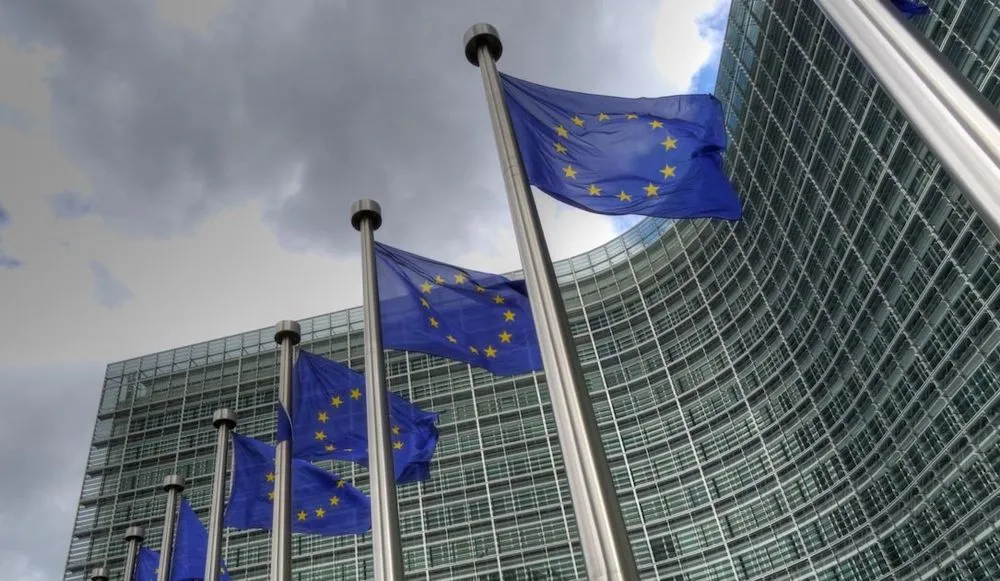EU sanctions target individuals, organizations behind Russia’s disinformation and sabotage operations
The European Union has unveiled a new sanctions package targeting individuals and entities linked to Russia's hybrid warfare efforts, including its disinformation, sabotage and espionage campaigns across Europe and Africa.
Among those sanctioned are members of the Russian military intelligence unit GRU, as well as individuals involved in promoting Kremlin narratives through social media campaigns. The EU also targeted companies providing critical support to these activities, including web hosting services and GPS jamming equipment.
The round of sanctions is part of a broader European strategy to counter Russia’s ongoing hybrid warfare activities, which have escalated since the start of the war in Ukraine. It also marks the second time the EU has targeted Russian disinformation networks.
“The longer Russia wages war, the tougher our response,” said Kaja Kallas, the European Union’s foreign policy chief.
Disinformation and propaganda
One of the sanctioned disinformation networks, Prague-based Voice of Europe, is engaged in “media manipulation and distortion of facts” through its website and accounts on Facebook, YouTube, Telegram and X. The organization was secretly financed and directed by Viktor Medvedchuk, a pro-Russian Ukrainian politician and businessman with close ties to the Kremlin.
Together with his associates and Voice of Europe, Medvedchuk carried out influence operations targeting European politicians and funding selected candidates in the 2024 European Parliament elections, according to the statement by the European Council. Czech authorities claimed they dismantled the Voice of Europe network last year.
The EU also imposed sanctions on individuals involved in spreading disinformation in Africa. Among them are Viktor Lukovenko, the head of the propaganda news agency African Initiative, and Justin Tagouh, the head of the International Africa Media press group, which reportedly has direct links to the Kremlin and spreads Russian narratives in African countries.
Another entity linked to Russian disinformation campaigns is the U.K.-based web hosting service provider Stark Industries, along with two Moldovan nationals operating it. According to previous reports, Stark Industries has become a central hub for large-scale cyberattacks and disinformation campaigns, including Kremlin-backed Doppelgänger. Its infrastructure is often used by Russian hacktivist groups and cybercriminals.
Sabotage operations
As part of its efforts to combat Russian hybrid warfare, the EU imposed sanctions on Kremlin-backed manufacturers of drones and radio communication equipment used by the Russian military, as well as entities and individuals involved in GPS signal jamming.
Recent GPS signal failures in several European countries have been linked to electronic warfare activities from Kaliningrad, including the jamming and spoofing of GPS signals, primarily affecting the Baltic states. These activities have disrupted civil aviation, the European Council said.
The repression of GPS signals requires the approval of the Russian General Radio Frequency Centre (GRFC), which was targeted by the latest sanctions. Its director and the acting general director were also on the list.
According to the EU, GRFC’s electronic warfare center in Kaliningrad has received new jamming equipment and conducted exercises using advanced systems capable of disrupting communications over large areas.
European countries have grappled with a range of Russian threats in recent months. Romania and Poland each reported increased Russian disinformation activity ahead of their presidential elections. Russia is also believed to have been behind several sabotage operations, including arson attacks across Europe.
Daryna Antoniuk
is a reporter for Recorded Future News based in Ukraine. She writes about cybersecurity startups, cyberattacks in Eastern Europe and the state of the cyberwar between Ukraine and Russia. She previously was a tech reporter for Forbes Ukraine. Her work has also been published at Sifted, The Kyiv Independent and The Kyiv Post.



